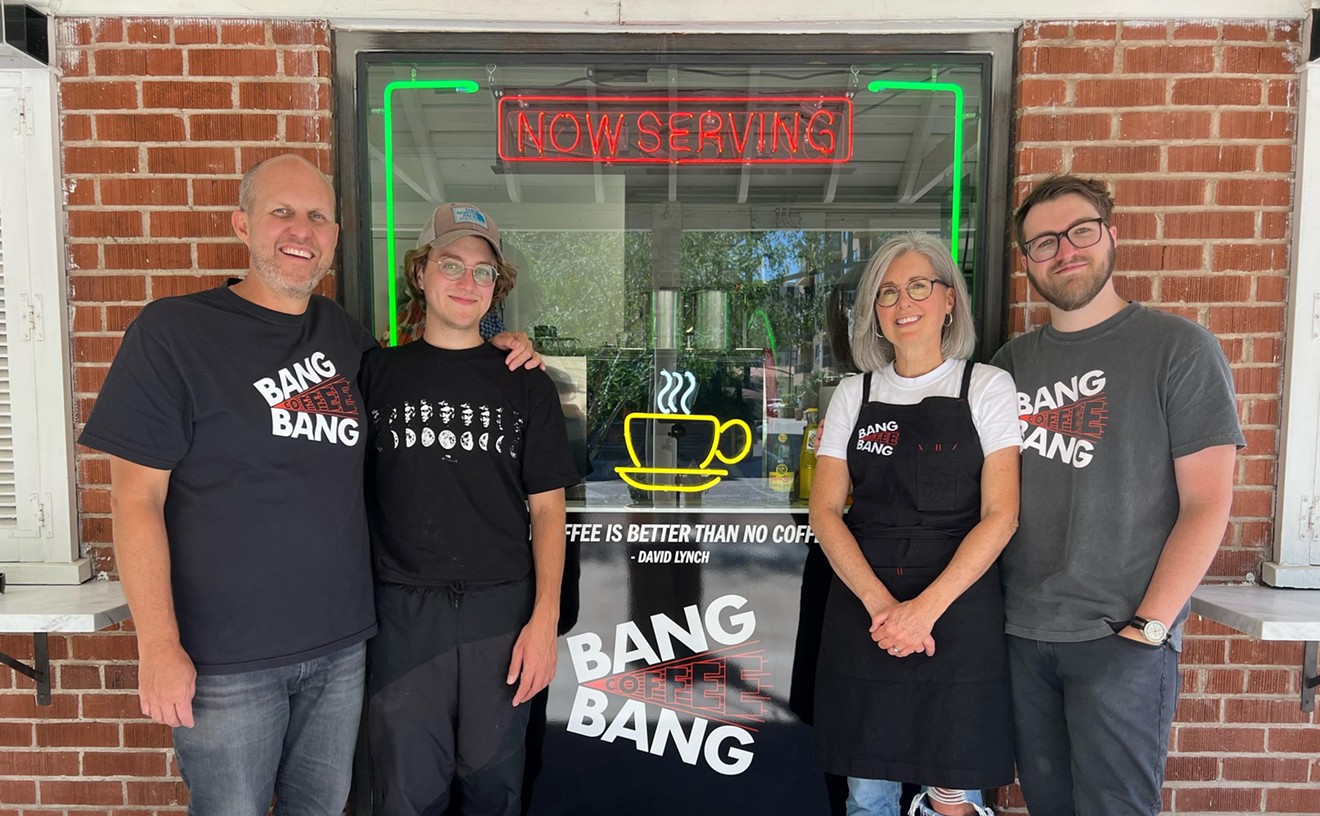At any rate, I was there because I am one of the city's worst drivers, and because I had been clocked by radar while traveling 70 miles per hour on the expressway. The class, sponsored by the National Safety Council, was held in a school set up at 16th Street and Osborn. Every seat in the room was filled when instructor Don Mowry called the class to order at 8:30 a.m.
I presume most of us had opted to take the class rather than to make an appearance in traffic court. We had all been ordered to bring a $75 money order to class with us. No checks or credit cards would be accepted. Neither would cash. I was told that if too many students paid cash, the driving class would be a more attractive place for a stickup than your average bank.
Instructor Mowry told us he'd been with the "supreme court of Arizona" for 14 years. He was referring to the traffic school. I don't know if Stanley Feldman, Arizona's chief Supreme Court justice, would agree with that characterization. It rained heavily that morning, so Mowry told us he was willing to excuse late arrivals.
"From now on, though," he said, "you will return to class on time after breaks and lunch or you won't receive credit for the class."
After he had finished calling the attendance roll, Mowry issued an order:
"No hats will be worn in class."
This piqued my interest. I sensed it might bring about a confrontation with the two men in the class who were wearing caps.
Mowry quickly softened his order by grinning. Then he added:
"Unless you absolutely think you have to wear it."
One man, a motorcycle rider, took his cap off. The other man continued to wear his baseball cap turned backward throughout the day. During recess I noticed him amusing himself by attempting to kick a guardrail loose.
Mowry conducted the class until 4 p.m. by employing alternate flashes of discipline and a demonstrable willingness to compromise. He seemed to feel a compulsion to exert discipline at times. And yet he also displayed an obvious wish to be friendly. This is, after all, a business. Repeat customers are appreciated.
Mowry told us he is a retired police officer. He'd been a traffic officer from the time he was 19. Later, after retiring, he became a safety engineer and served in that capacity in Saudi Arabia during the war in the Persian Gulf.
Mowry told us he had investigated hundreds of accidents, many involving fatalities. He related anecdotes about them throughout the day. He didn't just investigate accidents--he "covered" them. "Have any of you ever been given the bird by another driver?" he asked at one point.
Hands were raised all around the room.
"Have any of you ever given the bird to another driver?"
More hands were raised.
Mowry gave a knowing grin.
"My advice," he said, "is don't do that. I covered a case at 19th and Dunlap where a man was stopped at a red light and gave the finger to the driver in the car behind him.
"The other driver got out of his car and came up to the driver's-side window with a machete and cut off his hand. One of those drivers went right to jail and the other to the hospital."
Throughout the day, Mowry took the class through the rules of traffic safety with great care. Many times he seemed to be rigid and unbending. He has read the traffic regulations so many times that he would brook no disagreement. To him they are gospel.
For Mowry it is a cardinal sin to drive too fast, to drink and drive, to fail to buckle a safety belt, or to pass on the highway without the necessary clearance.
Finally, he told us a story that explained his rigidity.
In 1975, Mowry was working as a police officer when he was called to 59th Avenue to investigate a car-truck crash.
"I found my parents dead inside the car," Mowry said. "I had to call for a backup. All I could think of was, why couldn't he see the truck coming from the left?"
Five years later, two more of Mowry's close relatives were killed in another automobile crash in Chicago.
@rule:
@body:"How many deer were killed by motorists last year?" Mowry asked at one point.
No one knew the answer.
"One hundred and twenty thousand," Mowry said in a doomsday voice.
Listening to Mowry's lecture was like leafing through Harper's list of facts. Through most of the morning, Mowry's remarks about motorcycle riders led me to believe he disapproved of them. But I was mistaken.
He told a story about covering a fatal accident between a car and motorcycle.
"A fellow officer put his hand on my shoulder and warned me before I approached the scene. 'One more time,' he said."
Mowry moved forward and pulled back the sheet covering the victim and found that his nephew was lying there on the ground, dead. Mowry's nephew had been riding the motorcycle.
Mowry reserved his wrath for the woman driver who had crashed into the motorcycle.
"It was only a motorcycle," she said. "I thought I could beat it through the intersection."
Mowry said at one point:
"Over the years, this class has been attended by doctors who were speeding on their way to save lives and paramedics and firemen and police officers. All of them thought that their jobs excused them from obeying traffic regulations. They don't."
I detected a genuine effort on Mowry's part to project a feeling of caring. And yet I sensed a personal line of demarcation that he would not allow one to cross. It seemed critical to him that he remain in total control.
Late in the afternoon, Mowry revealed why.
He spoke of a time in his marriage when he had been so busy pursuing his various safety projects that he didn't notice how depressed his wife had become.
"You may wonder why I talk to you as if I've known you all my life," Mowry said. "It's because I want you to be able to talk to me. There may be something I can tell you that will help.
"You see, I was so busy at one time that I didn't see my wife's depression. I was so engaged in my work that I didn't see her needs. One day she took a gun from the cabinet and pressed it against her chest and killed herself."
There was a brief silence.
"I wish from the bottom of my heart that I had had a chance to talk to her just one more time."
Our driving instructor turned and moved quickly to the television set and inserted another traffic-safety film for us to watch.










